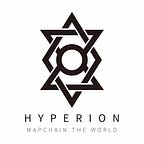The Privacy Map to Protect Your Location Share
The First Decentralized Map Product to Defeat Traditional Map
In 1984, George Orwell depicted an oppressive society under hegemonic political control and pervasive telescreen which is always on. Wherever you go, you’ll be greeted on each landing by a poster underscored with the words “BIG BROTHER IS WATCHING YOU.”
Privacy, as our birthright, is under surveillance by Internet and technology platforms, who utilise big data to influence our daily decisions. Apple CEO Tim Cook has called for new digital privacy laws in the United States to regulate companies, warning the harmful consequences caused by the collection of huge amounts of personal data. Cook pointed out that modern technology has led to the creation of a “data-industrial complex” in which private and everyday information is “weaponized against us with military efficiency.” However, even Apple was targeted by the spyware product Exodus, which could access photos, videos, device IDs, audio recordings, and contacts on target devices, while even could track a victim’s location and listening to their conversations through the iPhone or iPad’s microphone Once installed.
Privacy Trading
In the era of big data, individual privacy becomes trading capital for companies to make profits without proper regulations. 2018 privacy scandals exposed big techs’ profit model based on user data, and woke people to explore the privacy overuse and protections. In the meantime, those who lack the motivations to figure out privacy matters, believing the cost of personal data will reward them with better service and cheaper products, will soon realize even the big techs are changing towards privacy strategies.
Let’s take Google as an example. Google’s ecosystem is performed under its parent company, Alphabet, which has annual revenues of over $100 billion from digital ads. Alphabet helps Google collect user data from the Google Display Network — containing over 2 million sites and reaching over 90% of Internet users. Although Google was fined $57 million by GDPR for user privacy misconduct, the fine only accounted for 0.0045% of its annual gross profit. If Google becomes a bad choice, what alternatives do we have?
Privacy Map
Time and space elements explain basic human behaviors. For instance, the evidence of an alibi that judges whether a person was at the crime scene can be proved by time and geographic information. Even spatial data is enough to predict a person’s identity. For instance, by tracking a person’s home location and daily commute trace, a platform can accurately predict who that person is.
Hyperion launched a privacy map — Titan, aiming to provide 100% privacy map service. I will share my detailed product experience with all map users as follows.
#Registration details required
In most cases, users are required to fill in personal details when registering a new account. While Titan does not. It will ask me whether to participate product improvement plan when opened. If permits, as explained in the policy, Titan will collect device data only, such as the phone model. By contrast, Google Map integrates user accounts with personal details across all platforms.
#Burn up history
The “burn history” function is easy-to-discover at the front page. The button is a Titan logo, which will clear all my trace on the map with one tap. An easy design will remind users to use the function. Google’s delete history button is tricky, which requires users to find guidelines in help centre, go to timeline, and tap settings to delete all location history. If the valuable location history data remains, Google will allow 2 million sites within the network to access it.
#Offline map
It is estimated that an idle Android phone with Chrome active in the background sends location information to Google 340 times during a 24-hour period, including users’ name, telephone no., birthday, credit card no., as well as location data. Turn off mobile phone or Google app does not stop the data transmission. While Titan offers the option to use downloaded map data without internet and data connections.
#Private location share
Cryptographic location share is easy to understand. Titan encrypts both the location and receiver address, to make sure the only address holder can decrypt the map code received. Some might worry if decrypted map will be leaked out by screenshots. But it just doesn’t work like that. First the privacy Titan protects contains both the recognizable personal ID from the sender and receiver, as well as the location details. However, the decrypted map generated on Titan does not include any ID information, whereby disables the risk of privacy leakage from screenshots.
Who Will Need Privacy Map?
According to a survey conducted by China Youth Daily, more than 60% of respondents using mobile apps allowed their personal information to be shared with third parties. The situation is changing. Accenture Strategy presented in <2017 Global Consumer Pulse Research> that more than half of Chinese consumers now concern about personal data security when using AI service products. A random survey conducted by the end of 2018 by privacy browser Duckduckgo discovered that 1/3 of adults have set “Do not track me” on browser settings.
From my point of view, “security” is the valuable key to trigger potential privacy map user growth. The security Titan provides belongs to civil society, which is outside the regulation of governments. In other words, privacy map allows secure civil map location share without authority’s surveillance, such as between public figures, marginalized groups, or any personalized consumption behaviors needs. With the above features, Titan has already differentiated itself from the existing map service we use. After all, the widespread of privacy map, as I believe, requires sticky consumers, diversified scenarios for privacy location share; and a healthy ecosystem that rewards communities.
Download Titan and initiate the privacy era. Get it now on Google Play
